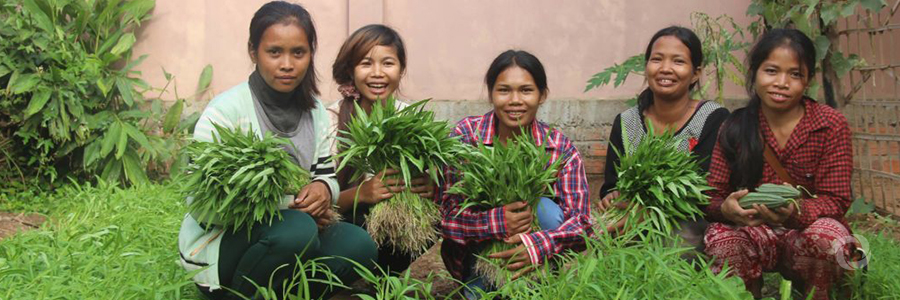As part of a project to help people adapt to climate change, UN Environment and the Cambodian government have established school vegetable gardens, along with a water-pump for irrigation and some training for growing vegetables.
There is barely a murmur from the dozens of pupils gathered in the grounds of Ngon primary school in Cambodia, even when the teachers are gone.
The smallest children at the school crouch next to vegetable patches, most knee-to-knee but completely concentrated on deftly picking through leaves and shoots to pick out weeds. Older pupils carry cans of water slightly lopsided from a levered pump, but still, the only real sounds are the water sloshing and the well squeaking.
The relative silence is not due to the tasks being a punishment or chore, but a pleasure for many students.
Now, Ngon’s 200 pupils regularly spend hours in the mellow afternoon sun tending to the school’s gardens. They reap enough produce to cater for school meals and even get food to take home.
Headteacher Toun Voun says there has been a marked improvement in health and wellness since the students started eating more greens.
As climate change causes shifting rain patterns and climate shocks, such as drought, people in countries that rely mainly on rain-fed agriculture are suffering increasing losses and insecurity.
In Cambodia, a US$5 million grant from The Adaptation Fund has helped communities living in protected areas in four provinces to benefit from home gardens and irrigation, fruit trees, chicken, and livestock-raising and cricket farming.
In community protected areas like Ngon, the projects are helping more than 6,000 people to supplement often dwindling incomes from rain-fed crops and to build sustainable local economies for generations to come.
Original source: UN Environment
Published on 15 January 2019

